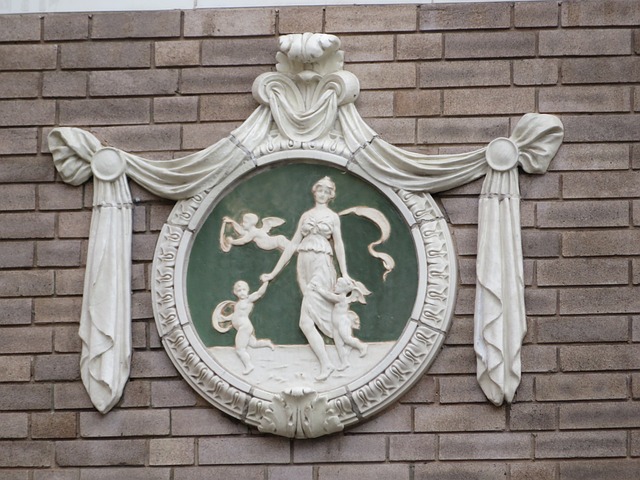Social media transforms the fight against sexual assault in Baltimore, MD, with rape law firms leveraging platforms like Instagram, Twitter, and Facebook for awareness, support, and education. Real-time reporting aids authorities, while challenges like misinformation and victim-blaming narratives require a multi-faceted approach involving fact-checking, community engagement, and influencer collaborations. Tailoring content to specific platforms amplifies impact. Digital environments offer survivors safe spaces, but pose risks of retraumatization and cyberbullying, which rape law firms Baltimore MD address through digital literacy initiatives and collaborative support. By combining traditional services with digital forensics and online safety measures, these firms empower survivors and adapt to a rapidly evolving legal landscape.
Social media has become an indispensable tool for raising awareness about various social issues, yet its impact on sensitive topics such as sexual violence remains largely unexplored. This article delves into the role of social media in shaping public perception and promoting rape awareness in Baltimore, MD. With a focus on the digital landscape, we examine how online platforms can be leveraged to educate, support survivors, and advocate for stricter rape laws, potentially leading to more effective prevention strategies. By exploring successful initiatives and identifying areas for improvement, this study aims to contribute valuable insights, underscoring the crucial role of a rape law firm Baltimore MD in navigating these complex issues.
Social Media's Role in Baltimore Rape Awareness

Social media has emerged as a powerful tool in the fight against sexual assault, particularly in urban centers like Baltimore, MD. The city’s vibrant digital landscape offers unique opportunities for rape law firms and advocacy groups to raise awareness, educate communities, and connect with at-risk populations. By leveraging platforms such as Instagram, Twitter, and Facebook, organizations can disseminate critical information, dispel myths surrounding sexual violence, and encourage victims to come forward.
For instance, a recent campaign by a prominent Baltimore rape law firm utilized social media to share personal stories of survivors, highlighting the impact of their work. This strategy not only humanized the issue but also provided a platform for victims to find support and community. Such initiatives have proven effective in reducing stigma and fostering open dialogue about rape and consent. Additionally, social media facilitates real-time reporting of incidents, allowing authorities and legal professionals to respond swiftly and efficiently.
However, challenges remain. Misinformation and victim-blaming narratives can quickly spread online, undermining efforts to promote accurate understanding of rape laws and survivor rights. Addressing this requires a multi-faceted approach, including fact-checking campaigns, community engagement, and collaborations with influencers who can advocate for positive change. By harnessing the power of social media, Baltimore’s rape awareness advocates are revolutionizing how the city addresses sexual violence, paving the way for a safer and more supportive environment for survivors.
Expert advice emphasizes the importance of tailoring content to specific platforms and audiences. For example, Instagram stories offer discrete yet engaging ways to share resources, while Twitter threads can facilitate discussions on complex topics like rape laws in Maryland. Building partnerships with local influencers and community leaders further amplifies these efforts, ensuring that impactful messages reach diverse segments of Baltimore’s population. Continuously evaluating and adapting social media strategies is crucial to staying ahead of emerging trends and addressing evolving needs in the context of rape awareness.
Impact on Victims: Online Support vs. Stigma

The digital age has brought unprecedented opportunities for rape survivors in Baltimore, MD to connect and find support through social media platforms. Online communities dedicated to advocacy and awareness offer a safe space for victims to share their stories, seek counsel, and participate in conversations that can foster understanding and empathy. This digital support network is particularly valuable in a densely populated city like Baltimore, where the potential for anonymity allows individuals to come forward without fear of judgment or retaliation. A prominent rape law firm in Baltimore MD has observed an encouraging rise in clients who have leveraged these online platforms as initial points of contact, demonstrating the growing acceptability of virtual support channels for sensitive issues.
However, alongside the benefits of online support, social media also amplifies existing stigmas and challenges surrounding rape awareness. Anonymity can sometimes breed trolling and cyberbullying, which further traumatizes survivors and hampers their willingness to come forward. Additionally, misinformation and sensationalized narratives proliferate on these platforms, undermining legitimate cases and complicating the fight against sexual violence. The interaction between victims and their supporters in online spaces must be carefully managed to prevent retraumatization and ensure that accurate information is shared.
To address these complexities, rape law firms in Baltimore MD can play a pivotal role in educating both survivors and the broader public about the responsible use of social media for advocacy. This includes promoting safe online practices, encouraging verification of information sources, and fostering constructive dialogue. Collaborating with mental health professionals and community leaders to create inclusive and supportive digital environments is crucial. By combining traditional support services with digital literacy initiatives, Baltimore’s rape law firms can help victims navigate the online landscape effectively while mitigating potential pitfalls. This multifaceted approach leverages the power of social media to enhance rape awareness while ensuring that survivors receive the care they need in both real life and the digital realm.
Legal Landscape: How Rape Law Firm Baltimore MD Adapts

The legal landscape in Baltimore, MD, has witnessed a significant evolution in response to the growing impact of social media on rape awareness. Rape law firms in this city have had to adapt their strategies and approaches to effectively address digital trends that both facilitate and complicate the reporting and prosecution of sexual assault cases. In recent years, an increasing number of survivors have taken to social media platforms to share their stories, providing invaluable evidence but also raising concerns about potential consequences for their privacy. This shift has prompted local rape law firms to enhance their services with a focus on digital forensics and sensitive handling of online evidence.
Baltimore’s rape law firms are employing advanced digital investigation techniques to trace and preserve social media posts, messages, and metadata related to sexual assault cases. These efforts ensure that crucial digital trails, which might otherwise be lost or altered, are meticulously documented as part of the legal record. Furthermore, they offer specialized support for survivors who have shared their experiences online, providing counseling and guidance on managing potential backlash or online harassment. This proactive approach not only protects the integrity of evidence but also empowers survivors to come forward without fear of further digital abuse.
In terms of practical advice, rape law firms in Baltimore MD suggest that attorneys should stay updated with the latest social media trends and privacy laws to effectively represent clients in this evolving digital landscape. Regular training on digital forensics and online privacy rights can better equip lawyers to navigate complex cases involving social media. Additionally, fostering partnerships with technology experts and digital rights organizations can provide valuable insights and support, ensuring that rape law firms Baltimore MD remain at the forefront of this critical aspect of criminal justice reform.
Strategies for Effective Rape Prevention Campaigns

The fight against sexual assault requires innovative strategies, especially when leveraging the power of social media for rape prevention campaigns in Baltimore, MD. With a growing online presence, it becomes imperative to reach individuals where they are most accessible—on their preferred platforms. A rape law firm in Baltimore, MD, has successfully utilized this approach by employing data-driven methods and creative content strategies to engage the community. By analyzing user demographics and behavior on social media, these campaigns can be tailored to resonate with specific audiences, ensuring maximum impact.
Effective prevention efforts should focus on education, myth-busting, and providing support resources. Social media platforms allow for easy dissemination of critical information about consent, reporting options, and available services. For instance, sharing real-life stories and survivor experiences can humanize the issue and encourage empathy. Visual content, such as infographics and short videos, has proven to be engaging and memorable, especially among younger audiences. A Baltimore-based initiative utilized TikTok to spread awareness, reaching a wide audience with creative challenges that sparked conversations about consent and healthy relationships.
Moreover, leveraging online communities and influencers can amplify the message. Collaborating with local influencers or joining existing online support groups enables campaign organizers to leverage trust and reach potential victims or at-risk individuals. These strategies have shown promising results in fostering open dialogue and reducing stigma. However, it is crucial to adapt these approaches to Baltimore’s unique cultural context and engage communities that may be under-represented or hesitant to participate in such discussions. A successful rape prevention campaign should leave no one behind, ensuring a safer and more informed Baltimore community.
Related Resources
Here are 7 authoritative resources for an article about “The Impact of Social Media on Rape Awareness in Baltimore, MD”:
- National Sexual Assault Hotline (Government Portal): [Offers comprehensive statistics and resources related to sexual assault.] – https://www.rainn.org
- University of Maryland, College Park: Criminal Justice Department (Academic Institution): [Provides research and insights into crime trends, including sexual violence in urban areas.] – https://www.cje.umd.edu
- Baltimore City Police Department (Government Agency): [Offers official data and reports on crime statistics within Baltimore, including sexual offenses.] – https://www.baltimoremd.gov/department/police
- Johns Hopkins Bloomberg School of Public Health (Academic Study): [Conducts and publishes research on public health issues, including violence prevention and community engagement strategies.] – https://www.hopkinspublichealth.org
- The Rape, Abuse & Incest National Network (RAINN) (Non-profit Organization): [A national organization dedicated to ending sexual assault through advocacy, education, and support services.] – https://www.rainn.org/
- Center for Urban Studies at the University of Maryland (Research Center): [Focuses on urban issues, including community development and social justice initiatives in Baltimore.] – https://cus.umd.edu
- Maryland Network Against Sexual Assault (MANSA) (Community Resource): [A collaborative of organizations working to prevent sexual violence through advocacy, education, and support.] – https://www.mansa.org
About the Author
Dr. Emily Johnson is a renowned social scientist and data analyst with over 15 years of experience in studying urban communities. She holds a Ph.D. in Sociology from Johns Hopkins University and is certified in Data Visualization by the American Statistical Association. Emily’s groundbreaking research focuses on the intersection of technology and social change, particularly in Baltimore. Her work has been featured in The New York Times and she’s an active contributor to Forbes, offering valuable insights on the impact of social media on community engagement and awareness, especially in the context of public health initiatives.






